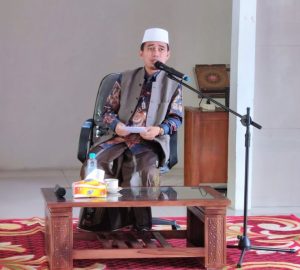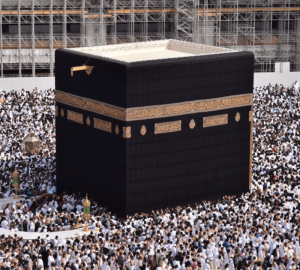The “Vision of Indonesia” speech by the elected president, Joko Widodo, on July 14 presented optimism and hope. In the speech, there were 5 priority targets of work programs delivered; continuing infrastructure development, human resource development, cutting back what hinders investment, bureaucratic reform, and using the state budget on target.
Of the five priority of work programs, HR development must be the highest and most important priority scale. This is important so that the 74th anniversary tagline of RI, “Excellent HR, Advanced Indonesia” is not just a slogan without meaning. Stuttering the translation of ” education of character” in a number of priority programs in volume I Jokowi should not occur in this second period. Through this Superior HR tagline, volume II Jokowi must really organize, reform thoroughly in our education system.
Problems
Our national education is like tangled yarn, the main problem from upstream to downstream has not been completely unraveled. The policies of each minister often overlap, negate each other rather than reinforce each other, and are not sustainable, especially when the Ministerial office is occupied by consideration of the representation of political parties.
Based on the 2015 PISA (Program for International Assessment) report, Indonesia’s education ranks 62th in the world (out of 70 countries) in the field of sanitation, 63 in the world of mathematics, and 64 in the world of reading. This figure is far below Singapore, Vietnam and Thailand. In fact, UNESCO mentions only 1 in 1,000 Indonesians who have serious reading interest. Therefore, it is not surprising that in the World Literacy notes issued by Central Connecticut State University, Indonesia is ranked 60 out of 61 countries.
The 2016/2017 Annual Research Digest Center for Education Economics (CFEE) concludes that Indonesian children are not ready to face the 21st century. Our children are only ready to face and have 21st century essential skills in the 31st century, the next 10 centuries. This means, we are left behind 1000 years.
Because of assuming and worrying that foreign institutions’ assessments of national education are biased, the Ministry of Education and Culture also makes the Indonesian National Assessment Program (INAP). The results are not much different. Only 2.29% of children mastered in mathematics, 6.06% had reading competence, and 1.01% mastered science.
The research data above portrays a variety of our educational walls, especially related to the quality of our education. In fact, our education from the beginning aimed to educate the life of the nation. And the frontline and shortcut to improve the quality of our education is in the hands of the teacher. Meanwhile, the results of the Teacher Competency Test (UKG) also did not show positive results, because only teachers in 10 provinces had an average value of 56.69, and only 192 out of 1.6 million teachers who took UKG had competencies above 90.
This is also an indicator of how preparing teachers from upstream by the Education Personnel Education Institute (LPTK) has not been fully satisfactory. Of the 421 LPTKs, only 18 are accredited A (2018). Meanwhile, LPTK graduates who reach 300 thousand per year face a dilemma problem; between competence and quality of graduates versus the availability of teacher needs which only reaches 40 thousand per year.
Meanwhile, the Research in Improving System of Education (RISE) notes that only a few districts and cities have policy or program initiatives related to improving the quality of teachers (in service teachers) at primary and secondary schools.
If this is the case, can we still hope for education through the skilled hands of teachers in schools to face the era of the industrial revolution 4.0?
Apart from that, another acute problem that needs to be considered by the Jokowi government, volume II is about access to education. The Indonesia Smart Card run by the government is only able to increase the Student Participation Rate (APM) below 1 percent. For elementary schools, the increase was only 0.77 percent, SMP 0.87 percent and SMA only 0.92 percent.
No less sad is related to the Minimum Service Standards (SPM). With SPM which is more input oriented, we cannot cover the fact that more than 90 thousand classrooms have been severely damaged, almost half of 214,409 schools do not have libraries, and only science laboratories are only available in 50 thousand schools. In the midst of these conditions, the Minister of Education and Culture issued a zoning system, a system that had good aspirations but was ignorant of field facts.
Educational Road Map
All the mess of education above must first be recognized and need to be awareness for the government, so that recognition and awareness becomes the starting point for a comprehensive overhaul of education. Of course, improving education is not as fast as building toll road infrastructure, because it certainly requires a short amount of time.
In this framework, compiling an educational road map on a short, medium and long term scale must be carried out. This road map must be a compass in the direction in which our education will go and what we are trying to achieve. So, whoever the minister is, he must obey the road map that has been determined. With this road map, Jokowi II will later leave a legacy that is very valuable to improve national education.
Within this framework, it is important to remember a number of important messages from Ki Hajar Dewantara that education is the seedbed of all the seeds of culture that live in national societies, the effort to advance the development of character (inner strength), mind (intellect), and physical children.
Ki Hajar’s big ideas about education which are inspired by pesantren education need to be a reference in compiling the road map. Moreover, in today’s situation, where education is increasingly separated from the spirit of building a national spirit (nationalism) of students. Through this road map, efforts to form a Superior HR can begin. In this way, the promise of debt to the founders of the nation can be fulfilled: to educate the nation’s life.
Artikel ini juga tersedia dalam bahasa:
 Indonesian
Indonesian




